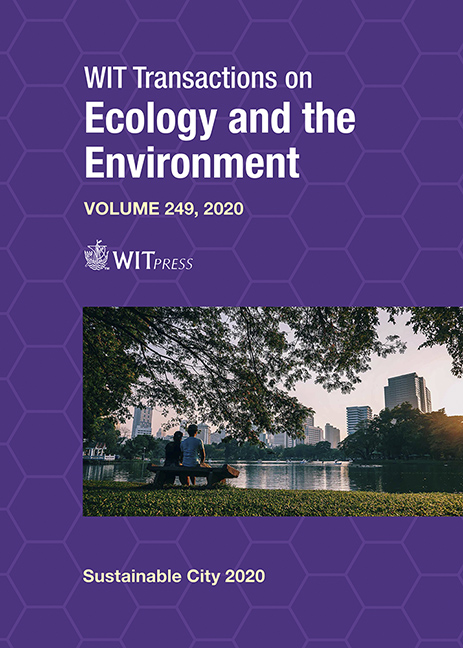SUSTAINABLE URBANIZATION IN PATAGONIA TO ADDRESS CLIMATE CHANGE AND COUNTRY NDCS: A CASE STUDY OF A MIXED COASTAL URBANIZATION PROJECT
Price
Free (open access)
Transaction
Volume
249
Pages
10
Page Range
31 - 40
Published
2020
Paper DOI
10.2495/SC200041
Copyright
WIT Press
Author(s)
DANIEL PEREZ, LAURA PEREZ, ADRIANA PEREZ, JORGE ABRAMIAN
Abstract
The current energy matrix in Argentina is highly dependent on fossil sources, with a low contribution from renewable sources. Argentina adhered to the Paris agreements of 2015 for the reduction of CO2 emissions. Therefore, the commitment to comply with the implementation of the NDC (National Determined Contributions) objectives mainly related to the generation of renewable energy and efficiency. This project aims at capacity building to support energy transitions towards low emissions and economic, ecological, resilient, and inclusive urbanizations. As the population grows, the quality of ecosystems and the urban environment correlates to public health, where the balance between demographics reduces pressure on the natural environment, creating and improving the conditions of sustainable urbanizations to provide greater protection of biodiversity and the natural environment. The project is a possible scalable model of sustainable urbanization development in arid coastal environments, addressing issues of land restauration, clean energy generation, reducing fossil fuel dependency, waste and water management, circular economies, and bioclimatic architecture for energy efficiency to combat climate change. A case study is presented as the first mixed eco-urbanization project in Patagonia, designed to minimize the impact on the environment and the living beings; combining rewilding of eroded coastal areas, for the creation of natural landscape reserve areas, and public areas, including an interpretation of scientific research and education centre; and other facilities. All these combined, promoting socialization and exchange, benefit the entire community. The multithemed project would be unprecedented in the region. It restores an area eroded for decades by quarries, landfills from human misuse, ordering a public-private space, generation of productive activities, direct investment, and employment. It enhances landscape conditions to support tourist resources and the beauties of the Patagonian region.
Keywords
sustainable urbanization, arid environments, eco-urbanization, mixed urbanization, Patagonia, urban planning, eroded coastal, energy transitions, dune, coastal restauration





